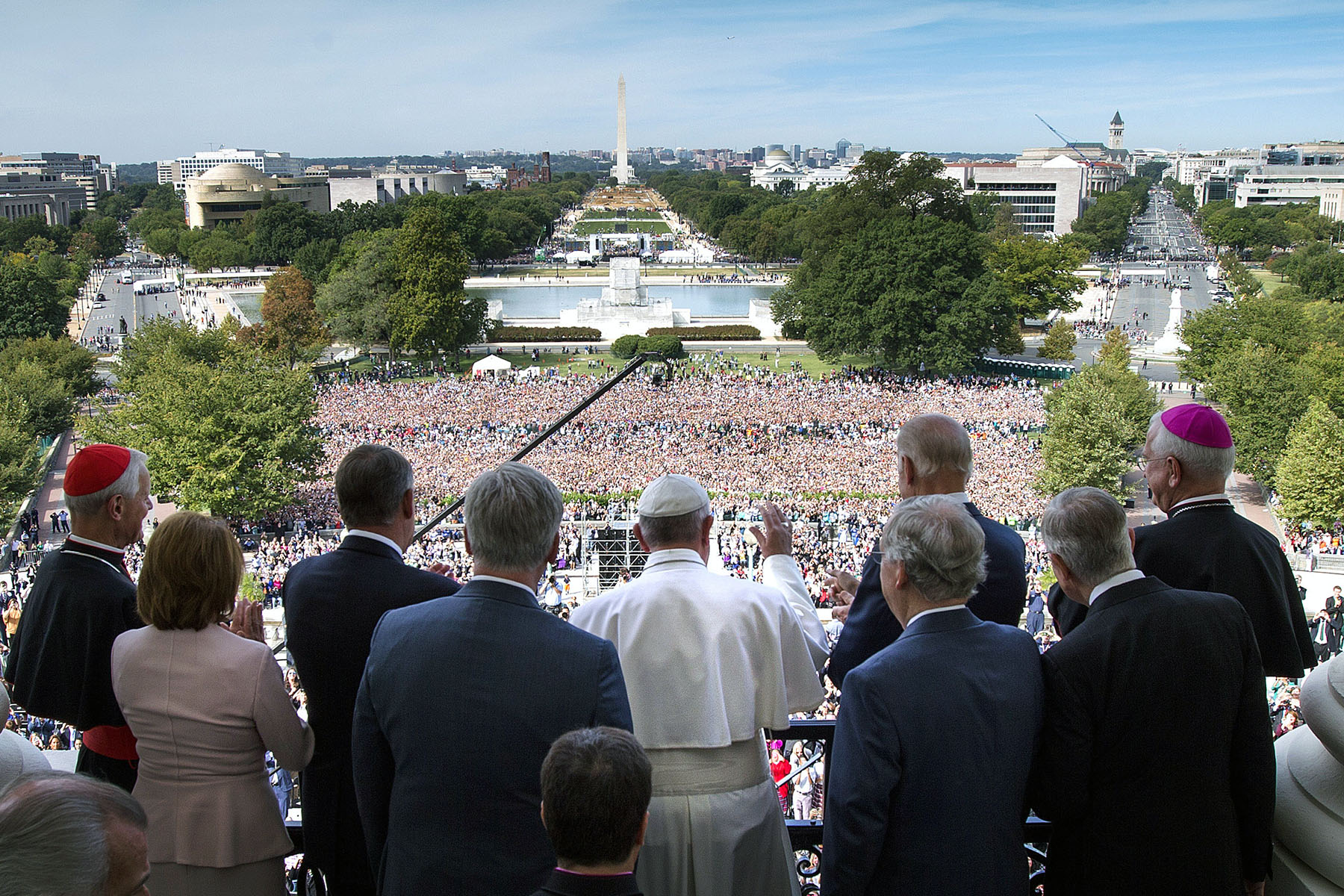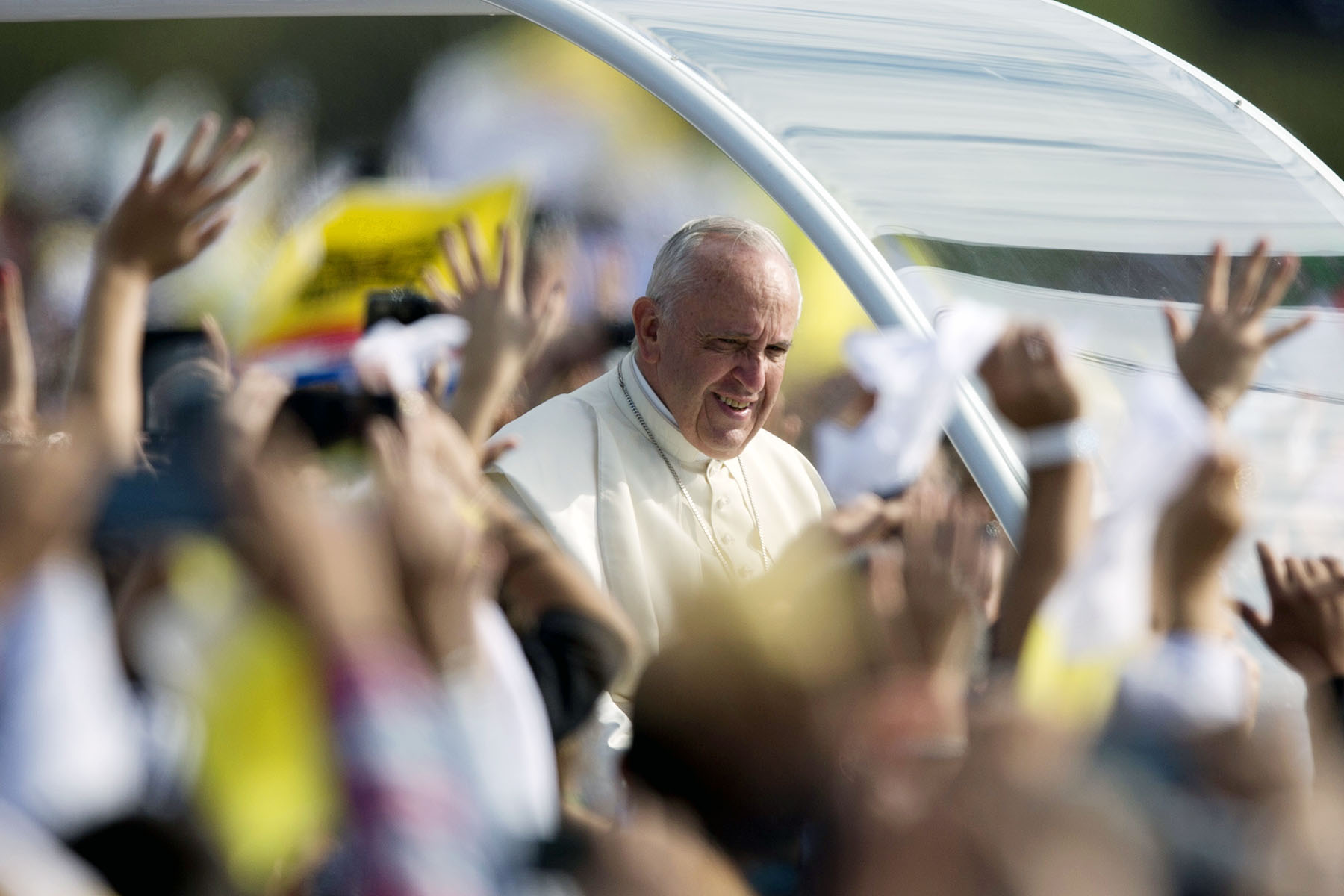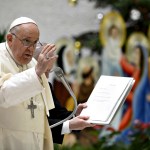Pope Francis, who as head of the Roman Catholic Church advocated for a greater acceptance of LGBTQ+ people and protection for migrants, died on Monday after a series of respiratory infections, which were particularly dangerous as he was already missing part of one lung due to a serious bout of pneumonia he experienced as a young man. He was 88.
The Vatican announced his death in a brief statement on the social media platform X.
Elected in 2013, Pope Francis was the spiritual leader of more than 1.4 billion Catholics around the world, including 53 million Catholic adults in the United States — accounting for about 20 percent of the country’s adult population.
Pope Francis, born Jorge Mario Bergoglio in Buenos Aires, Argentina, was the first in a long line of 266 popes to be from South America and the first born outside of Europe since the 8th century. The pope, also the first to be a member of the Jesuit Order, was beloved by many progressive Catholics and lauded for his priorities of uplifting marginalized communities, protecting immigrants and advocating for environmental justice. According to a 2024 Pew Research Center survey, about 75 percent of U.S. Catholics viewed Pope Francis favorably.
-
A New Pope Is Chosen:
-
A New Pope Is Chosen: What Pope Leo XIV has said about LGBTQ+ people, immigration and abortion
But he was also a polarizing figure. He struggled to manage the ongoing sexual abuse crisis that plagued his predecessor, Pope Benedict XVI. Pope Francis met with survivors and attempted to pass reforms within the Church, but victims continue to come forward. Under his leadership, the Church allowed baptized lay people — including women — to head most administrative departments and put more women in senior Vatican roles than under any other pope. There was also a growing dissatisfaction among Republican Catholics and those that identify as conservative, according to Pew. He was a contrast from his more traditionalist predecessor, Benedict XVI: Notably, Pope Francis put restrictions in 2021 on the Latin Mass typically favored by conservative American Catholics and again in 2023 after some conservative bishops openly defied him.
Pope Francis characterized some American conservatives as “backward” in a private meeting with priests in August 2023. “When you go backward, you make something closed off, disconnected from the roots of the church,” he added. In many ways, the ideological clashes among American Catholics reflected a broader culture war between conservatives and progressives.
During his tenure, here’s what Pope Francis said on a number of issues:
LGBTQ+ people
In July 2013, Pope Francis famously replied: “If someone is gay and he searches for the Lord and has good will, who am I to judge?” when asked about gay priests. The pope told reporters while on a plane returning from his first papal trip that people shouldn’t be marginalized for their sexual orientation, but must be integrated into society.
The Catholic Church says LGBTQ+ people should be respected and not discriminated against, but continues to maintain that homosexual activity is “intrinsically disordered.”
In May 2018, Pope Francis told Juan Carlos Cruz, a gay man, that “God made you like this and he loves you,” according to the AP. Cruz, the main whistleblower in a sex abuse scandal in the Catholic Church in Chile, was invited by the pope to discuss his case alongside other victims of a predatory priest. The Vatican declined to confirm or deny the remarks because they were part of a private conversation.
In January 2023, Pope Francis said that “being homosexual isn’t a crime” and called laws that criminalize homosexuality “unjust” in an exclusive interview with the AP. He reiterated, however, that the Catholic Church holds that homosexual activity is sinful. The comments came after at least 20 states introduced “Don’t Say Gay” legislation — laws that restrict public school teachers from discussing LGBTQ+ history or people in public elementary schools.
In October 2023, Pope Francis signed a document that said that under certain circumstances trans people can be baptized as Catholics and serve as godparents. The document came months after the United States Conference of Catholic Bishops issued their own guidelines to stop Catholic hospitals from providing gender-affirming transition care.
In December 2023, Pope Francis published a declaration addressing if, when and how priests or deacons could bless same-sex couples. Blessings of people are allowed, the pope ruled — but same-sex unions remain excluded.
“There are several occasions when people spontaneously ask for a blessing, whether on pilgrimages, at shrines, or even on the street when they meet a priest,” according to the declaration text. “Such blessings are meant for everyone; no one is to be excluded from them.”
Still, the declaration also clarified that the blessing should “never be imparted in concurrence with the ceremonies of a civil union” and cannot be performed with any “clothing, gestures or words that are proper to a wedding.”
In March 2024, Pope Francis approved a declaration, reportedly in the works for five years, that called gender-affirming surgery a grave violation of human dignity.
“Creation is prior to us and must be received as a gift,” Pope Francis said in the declaration. “At the same time, we are called to protect our humanity, and this means, in the first place, accepting it and respecting it as it was created.”

Abortion and reproductive care
Pope Francis has always maintained that “abortion is murder” and a “grave sin,” and the Catholic Church is strictly opposed to the procedure in all cases.
In September 2015, Pope Francis announced that the Catholic Church would allow priests all over the world to grant forgiveness for abortions. Before the decision, only bishops and priests granted special permission were allowed to lift the penalty of excommunication from the Church and absolve the sin of procuring an abortion. However, most American priests already had permission from their bishops to do this for decades.
In September 2021, a reporter asked Pope Francis about whether politicians who support abortion should be able to receive Communion during Mass. At the time, American Catholic bishops were debating whether President Joe Biden and House Speaker Nancy Pelosi — both practicing Catholics who also support abortion rights — should be barred from Communion. Pope Francis responded that he didn’t want to speak directly to the United States but “the principle.”
“If we look at the history of the church, we can see that every time the bishops did not act like shepherds when dealing with a problem, they aligned themselves with political life, on political problems,” Pope Francis said, adding that he had never refused anyone Communion.
In May 2023, Pope Francis wrote a letter that maintained the Church’s stance against in vitro fertilization and artificial birth control, encouraged adoption and called on Catholic universities to study alternative methods for those struggling with fertility.
In a declaration he approved in March 2024, Pope Francis once again called for an end to the practice of surrogacy, which he compared to “trafficking,” and argued that people do not have a “right to a child” because that approach fails to “respect the dignity of that child as a recipient of the gift of life.”
“I deem deplorable the practice of so-called surrogate motherhood, which represents a grave violation of the dignity of the woman and the child, based on the exploitation of situations of the mother’s material needs,” he said in the declaration. “A child is always a gift and never the basis of a commercial contract.”
Immigration
As the first Latin American pontiff, Pope Francis had long been vocal about caring for migrants and calling on countries to welcome, protect and integrate them.
In February 2016, during Trump’s first presidential campaign, Pope Francis traveled to the U.S.-Mexico border where he held a Mass. When asked about Trump’s campaign promise to build a wall, the pope responded that anyone who builds a wall rather than a bridge is “not a Christian.”
In 2017, the pope didn’t explicitly refer to Trump or the United States but he repeated his appeal during a weekly address to not build walls but to “live in peace with everyone.” The comments came amid Trump’s controversial executive order barring people from seven Muslim-majority countries from entering the United States.
“In the social and civil context as well, I appeal not to create walls but to build bridges,” Pope Francis said. “To not respond to evil with evil. To defeat evil with good, the offense with forgiveness. A Christian would never say ‘you will pay for that.’ Never.”
In an unusually targeted letter to the American bishops, dated February 10, 2025, Pope Francis took direct aim at the Trump administration’s policy of mass deportations.
“I have followed closely the major crisis that is taking place in the United States with the initiation of a program of mass deportations,” Pope Francis wrote. “The rightly formed conscience cannot fail to make a critical judgment and express its disagreement with any measure that tacitly or explicitly identifies the illegal status of some migrants with criminality.”
It is unusual for a pope to directly attack a particular policy or government, especially a democracy.
Pope Francis recognized in his letter that it is a nation’s right to “defend itself and keep communities safe from those who have committed violent or serious crimes while in the country or prior to arrival,” but he goes on to say that any policy “built on the basis of force” will end badly.
The pope also seemed to respond to comments from Vice President JD Vance, a Catholic, in which he used medieval Catholic theology — referred to as “ordo amoris” — to defend mass deportations. In a Fox News interview, Vance said he believed you love your family, neighbor, community and country before focusing and prioritizing the rest of the world.
In his letter to the bishops, Pope Francis said: “Christian love is not a concentric expansion of interests that little by little extend to other persons and groups. … The true ordo amoris that must be promoted is that which we discover by meditation constantly on the parable of the ‘Good Samaritan’, that is by meditating on the love that builds a fraternity open to all, without exception.”
Climate change
Pope Francis repeatedly emphasized that climate change disproportionately impacts the poor and marginalized, especially women and children, and views environmental degradation as a social and ethical issue, calling for urgent action and a shift in perspective.
In May 2015, Pope Francis published one of his first encyclicals — a letter from the pope that interprets church doctrine. It was called “Laudato Si’” and focused on climate justice and global equity, the first in history to be dedicated to the environment.
“Climate change is a global problem with grave implications: environmental, social, economic, political and for the distribution of goods,” Pope Francis wrote in the encyclical, which was published ahead of a United Nations climate change conference in Paris. “It represents one of the principal challenges facing humanity in our day. Its worst impact will probably be felt by developing countries in coming decades.”
In his first visit to the United States in September 2015, Pope Francis gave an address at the White House. He spent more time on climate change than any other subject.
“It seems clear to me also that climate change is a problem which can no longer be left to a future generation,” Pope Francis said. “When it comes to the care of our common home, we are living at a critical moment of history. We still have time to make the changes needed to bring about a sustainable and integral development, for we know that things can change.”






